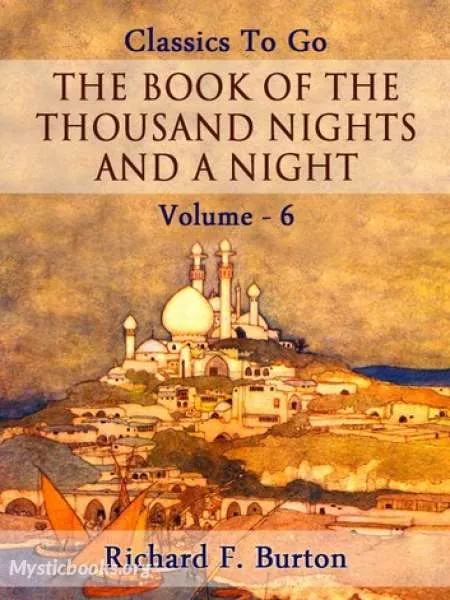
The Book of A Thousand Nights and a Night (Arabian Nights), Volume 06
'The Book of A Thousand Nights and a Night (Arabian Nights), Volume 06' Summary
The main frame story concerns Shahryār (Persian: شهريار, from Middle Persian: šahr-dār, 'holder of realm'), whom the narrator calls a "Sasanian king" ruling in "India and China." Shahryār is shocked to learn that his brother's wife is unfaithful. Discovering that his own wife's infidelity has been even more flagrant, he has her killed. In his bitterness and grief, he decides that all women are the same. Shahryār begins to marry a succession of virgins only to execute each one the next morning, before she has a chance to dishonour him.
Eventually the Vizier (Wazir), whose duty it is to provide them, cannot find any more virgins. Scheherazade (Persian: شهْرزاد, Shahrazād, from Middle Persian: شهر, čehr, 'lineage' + ازاد, āzād, 'noble'), the vizier's daughter, offers herself as the next bride and her father reluctantly agrees. On the night of their marriage, Scheherazade begins to tell the king a tale, but does not end it. The king, curious about how the story ends, is thus forced to postpone her execution in order to hear the conclusion. The next night, as soon as she finishes the tale, she begins another one, and the king, eager to hear the conclusion of that tale as well, postpones her execution once again. This goes on for one thousand and one nights, hence the name.
The tales vary widely: they include historical tales, love stories, tragedies, comedies, poems, burlesques, and various forms of erotica. Numerous stories depict jinn, ghouls, apes, sorcerers, magicians, and legendary places, which are often intermingled with real people and geography, not always rationally. Common protagonists include the historical Abbasid caliph Harun al-Rashid, his Grand Vizier, Jafar al-Barmaki, and the famous poet Abu Nuwas, despite the fact that these figures lived some 200 years after the fall of the Sassanid Empire, in which the frame tale of Scheherazade is set. Sometimes a character in Scheherazade's tale will begin telling other characters a story of his own, and that story may have another one told within it, resulting in a richly layered narrative texture.
Different versions differ, at least in detail, as to final endings (in some Scheherazade asks for a pardon, in some the king sees their children and decides not to execute his wife, in some other things happen that make the king distracted) but they all end with the king giving his wife a pardon and sparing her life.
The narrator's standards for what constitutes a cliffhanger seem broader than in modern literature. While in many cases a story is cut off with the hero in danger of losing their life or another kind of deep trouble, in some parts of the full text Scheherazade stops her narration in the middle of an exposition of abstract philosophical principles or complex points of Islamic philosophy, and in one case during a detailed description of human anatomy according to Galen—and in all of these cases she turns out to be justified in her belief that the king's curiosity about the sequel would buy her another day of life.
Book Details
Language
EnglishOriginal Language
Arabic, PersianPublished In
Authors

Richard Francis Burton
England
Sir Richard Francis Burton was a British explorer, scholar and soldier. He was famed for his travels and explorations in Asia, Africa, and the Americas, as well as his extraordinary knowledge of langu...
Books by Richard Francis BurtonDownload eBooks
Listen/Download Audiobook
- Select Speed
Related books
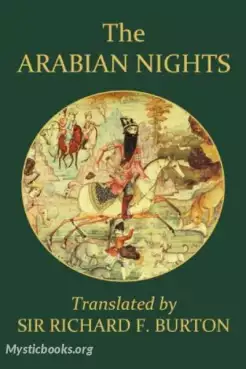
The Book of A Thousand Nights and a Night (Arabian Nights), Volume 01 by Richard Francis Burton
One Thousand and One Nights is a collection of Middle Eastern folk tales compiled in Arabic during the Islamic Golden Age. It is often known in Englis...
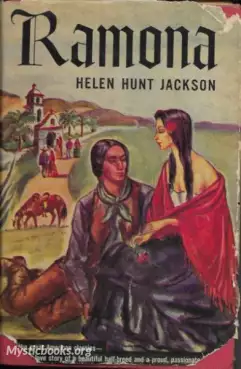
Ramona by Helen Hunt Jackson
Ramona is a American novel written by Helen Hunt Jackson. Set in Southern California after the Mexican–American War, it portrays the life of a mixed-r...

Handy Mandy in Oz by Ruth Plumly Thompson
Mandy, a young girl with seven hands, is whisked away to the magical land of Oz. Mandy is a young girl who loves to build things. She has seven hands...

I Am A Cat (excerpt) by Sōseki Natsume
In "I Am a Cat", Natsume Sōseki presents a unique and insightful exploration of Japanese society through the eyes of a cynical yet perceptive feline n...
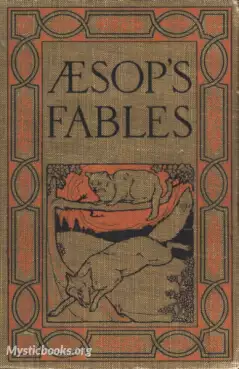
Aesops Fables in Russian by Aesop
A collection of the most famous from Aesop's fables in Russian language.
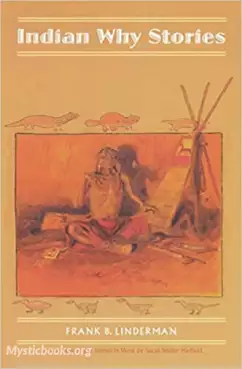
Indian Why Stories: Sparks From War Eagle's Lodge-Fire by Frank Bird Linderman
Delightful fables, collected by a devotee of Indian lore, recounts many of the legends told to him by tribal members, among them intriguing explanatio...

Jataka Tales by Ellen C. Babbitt
The Jataka Tales are a collection of stories that originated in ancient India. They are said to be based on the teachings of the Buddha, who lived in...

Viking Tales by Jennie Hall
Viking tales are tales from Iceland, featuring the king Halfdan and his son Harald. These tales are about Viking adventures exploring the world. They...
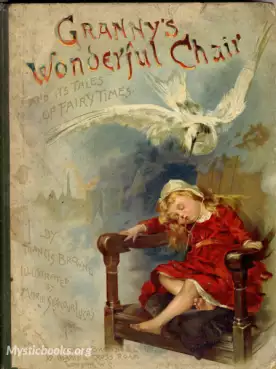
Granny's Wonderful Chair by Frances Browne
This is the story of Snowflower. Left to fend for herself by her grandmother, Dame Frostyface, Snowflower turns to the ‘wonderful chair’ for company....

The Forged Note: A Romance of the Darker Races by Oscar Micheaux
It tells a captivating story about the complex issues of race and class in early 20th-century America. Published in 1935, "The Forged Note" centers a...
Reviews for The Book of A Thousand Nights and a Night (Arabian Nights), Volume 06
No reviews posted or approved, yet...